Israeli demolitions and police raids on Palestinian towns ‘threaten public health’ as coronavirus cases soar
Israel has enforced some of the strictest measures to stem the spread of Covid-19 – but how can Palestinians and Arab citizens stick to quarantine rules when their houses are being demolished and they are homeless. Bel Trew in East Jerusalem on an already controversial policy that is now endangering lives

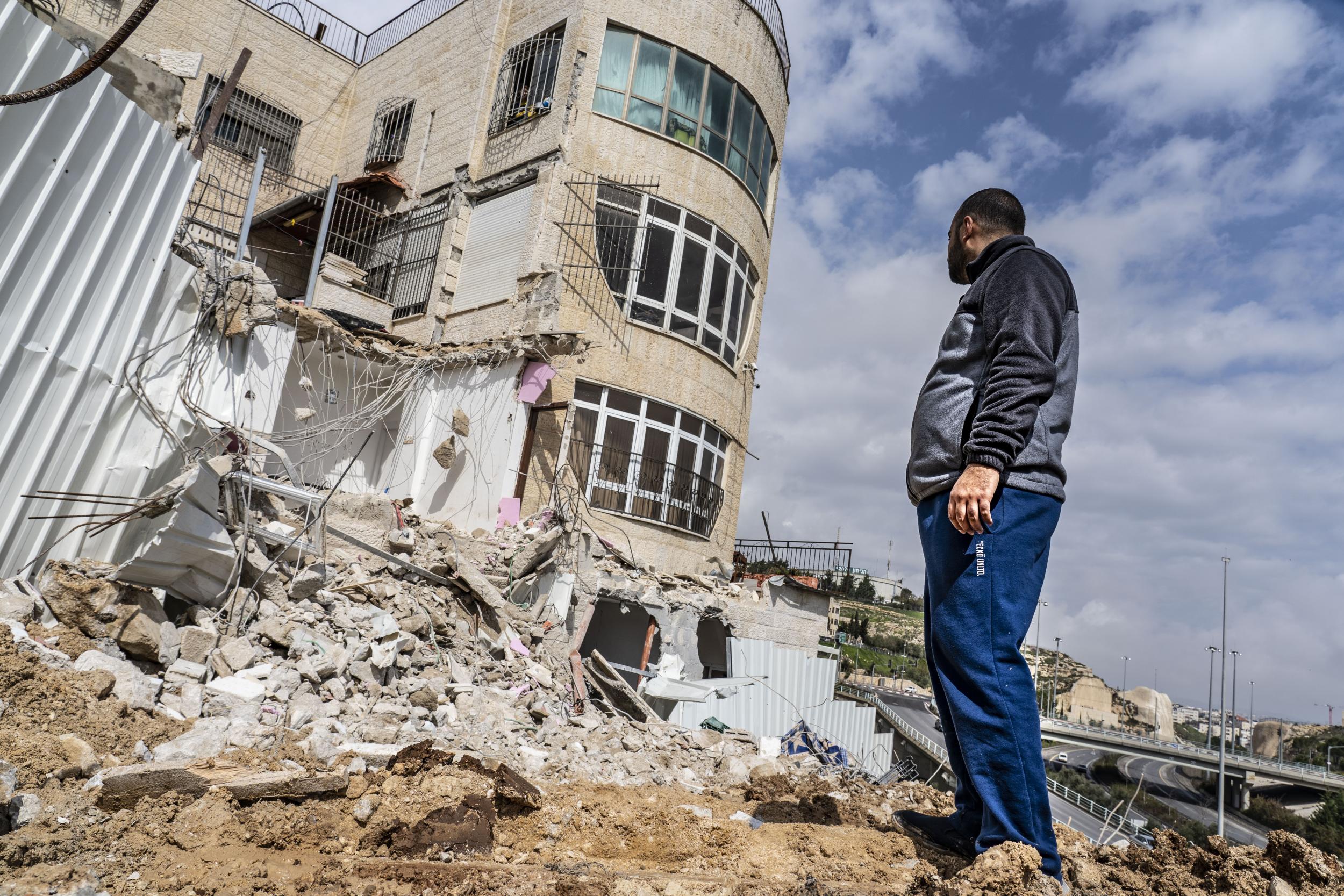
The Palestinian newlyweds were first worried about where they were going to live when the Israeli authorities made them demolish their home in East Jerusalem earlier this month. Now, amid a surge in cases of the coronavirus, Mohamed, 26, and his bride fear they cannot protect themselves against the spread of the deadly disease. The family was given a deadline of the first week in March to demolish their new home or pay 120,000 shekels (£27,000) for the Israeli authorities to do it, which they could not afford. And so, Mohamed spent thousands of dollars hiring a bulldozer to hack down the flat he had just built a few weeks ago.
The demolition has also left metre-wide holes in the bedroom walls of Mohamed’s cousin’s house, gaps that the Israelis have forbidden them from filling. It has forced Mohamed’s cousin Moussa, 34, his wife and their five children to sleep on the floor of the living room in freezing weather, as rain floods in through the yawning cavities.
The damage has made it near impossible for the extended family, which lives in the same compound, to follow Covid-19 social distancing rules and self-quarantine regulations. The measures, which have been rolled out across Israel, the Palestinian Territories and the world, order people to separate themselves and stay at home except if completely necessary.
“How can any of us possibly self-isolate against the spread of the coronavirus if we have no house or we have holes in the walls?” Mohamed asks, standing inside the mangled remains of what was supposed to be his living-room. Mohamed says the family has lived for more than 20 years on the land which overlooks the sprawling Israeli town of Pisgat Zeev, a settlement deemed illegal under international law. “I have no roof or walls to protect me from the virus or even to protect me from rain and cold,” he adds with desperation.
Like many Palestinians in occupied East Jerusalem, the Bashiti family was ordered by the Israeli authorities to pull down the new addition to the larger property, after losing three appeals this year for building without an Israeli permit. Rights groups say these permits are near impossible for Palestinians to secure even if the construction, like in this instance, takes place on privately owned land. According to Israeli human rights organisation B’Tselem, 2019 was actually a record high year for house demolitions in East Jerusalem. It says the demolitions are part of an Israeli policy to further its goal of “perpetuating a Jewish majority in the contested city”.
The demolition of Mohamed’s flat has damaged the adjacent apartment belonging to Moussa and left large fissures in the walls of the rest of the property, which houses the extended family. Water seeps through the cracks. “It’s freezing with massive holes in the walls. But if I try to repair it, they demand I take it down and move the wall a metre back,” says Moussa, 34, sitting in his family’s only room with the children huddled around a single electric heater.
“I am unemployed. There is no work, so I have no money to do that,” he adds.
Mohamed, now parted from his wife who was forced to move in with her parents, also does not have the money to repair the structural damage to the property. After spending $4,000 (£3,270) on lawyer fees to fight the unsuccessful appeals as well as the bulldozer costs he cannot afford to rent anywhere to follow coronavirus regulations properly. “I live in the most difficult days of my life and it’s impacting my family. If we have just one case of coronavirus here, we will all get it, we will die” he says.
Israel has enforced some of the strictest measures to stem the spread of the deadly Covid-19 including a lockdown mandating Israelis to stay home, banning foreign visitors who cannot quarantine and – together with the Palestinians – shutting off areas of the West Bank and Gaza.
But despite the obvious health risks, the country is continuing to demolish structures belonging to Palestinians or Arab citizens of Israel and to launch police raids on vulnerable Palestinian neighbourhoods. According to B’Tselem, on Thursday Israeli security forces also confiscated tents in the West Bank’s northern Jordan Valley that were meant for a field clinic as well as emergency housing for residents evacuated from their homes.
More than 3,000 people have been infected by Covid-19 in Israel while at least 10 people have died. In the Palestinian territories, 91 have caught the virus, including nine in Gaza. One woman in her sixties has died.
On Wednesday Israel tightened restrictions on its citizens, banning anyone from going further than 100 metres from their homes except if absolutely necessary. Shortly afterwards Israeli prime minister Benjamin Netanyahu compared the pandemic to “the Black Death, cholera and the Spanish flu early in the last century”.
In the West Bank, the Palestinian government, meanwhile, has sealed off entire cities and ordered people to stay home for two weeks. In Gaza, already under a kind of a lockdown, thousands are in quarantine.
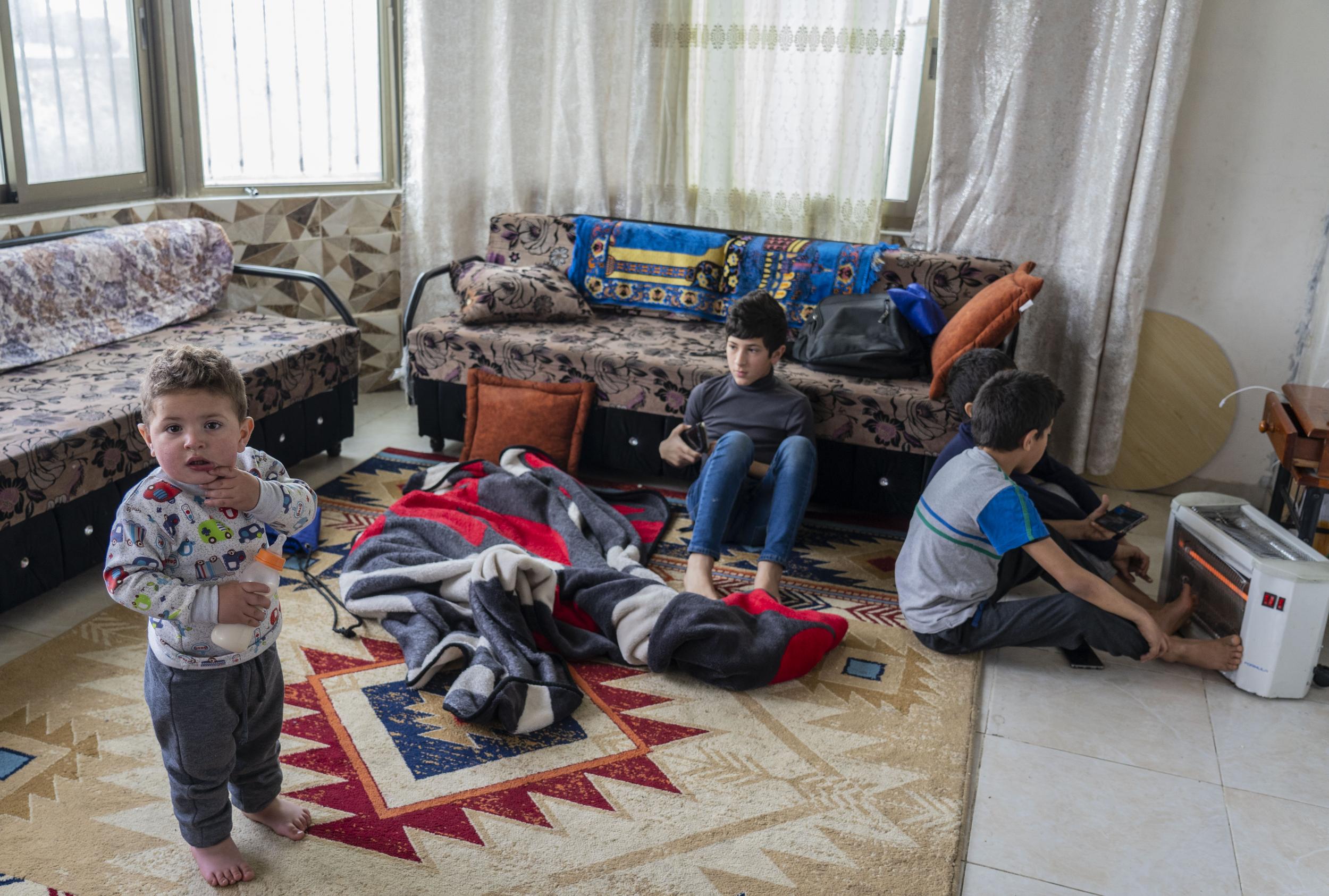
These important health measures will help slow the spread of the virus and save lives, but rights groups say the actions of the Israeli security forces are hampering these efforts. In the past two weeks, several houses and structures have been pulled down on Israeli demolition orders in al-Muntar in the occupied West Bank, as well as in Shuafat refugee camp in East Jerusalem, according to B’Tselem, the Association for Civil Rights in Israel (Acri) and the Adalah legal centre. It has left several families homeless.
Adalah and Acri say structures belonging to Arab citizens of Israel in Kafr Qassem, north of Jerusalem, have also been destroyed. They say Bedouin communities in the southern Israeli region of Negev have been handed warnings ordering them to leave homes within their villages, which are not recognised by the authorities. Again, over issues like permits.
All the groups say that during normal circumstances house demolitions, both punitive and administrative, are incredibly abusive and in many instances a violation of international law. But during a global pandemic it endangers lives. “Many of these families can barely keep the social distancing regulations in their crowded houses when they have them,” says Adalah attorney Suhad Bishara. “If you forcibly evict them and demolish those homes, they definitely cannot follow any health regulations.”
Acri was so alarmed by reports that demolitions were continuing they directly appealed to Israel’s ministry of justice and the army’s central command to freeze demolition orders, arguing people’s homes have become their only refuge and that “that policy constitutes a real threat to public wellbeing”.
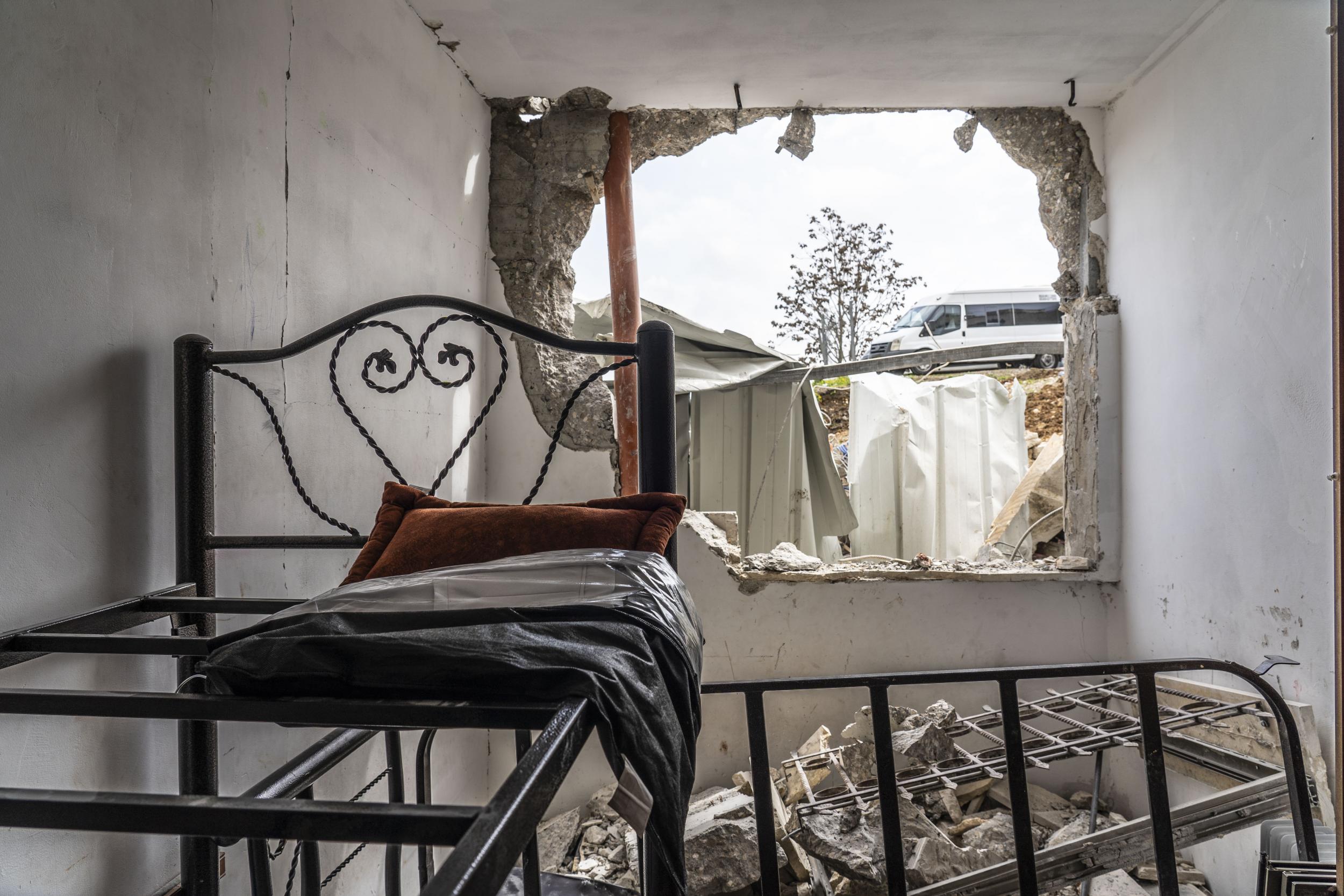
The justice ministry responded saying that there will not be any future demotions in Israel and East Jerusalem for the time being, except if there is new construction. “Our concern is for families who are forced to make repairs to their homes after the intense winter and rainy season, including fixing their roofs,” Sana Ibn Bari, an Acri lawyer, told The Independent. “[This could be] considered ‘new construction’ and could constitute grounds for a demolition order,” she added.
The Jerusalem Municipality, which is in charge of enforcing most of the house demolitions in the city, told The Independent separately it had suspended its house inspections and existing demolition orders since the new Covid-19 regulations were announced over two weeks ago.
A spokesperson added that they could not comment on the policy of any other government body. They did comment on the 13 March self-demolition of flats in Shuafat refugee camp, East Jerusalem.
Acri said it received no reply from central command about what would happen in the West Bank – where in al-Muntar four buildings, including the seasonal home of a shepherd and his flock, were demolished by Israeli authorities last Thursday despite a nationwide lockdown.
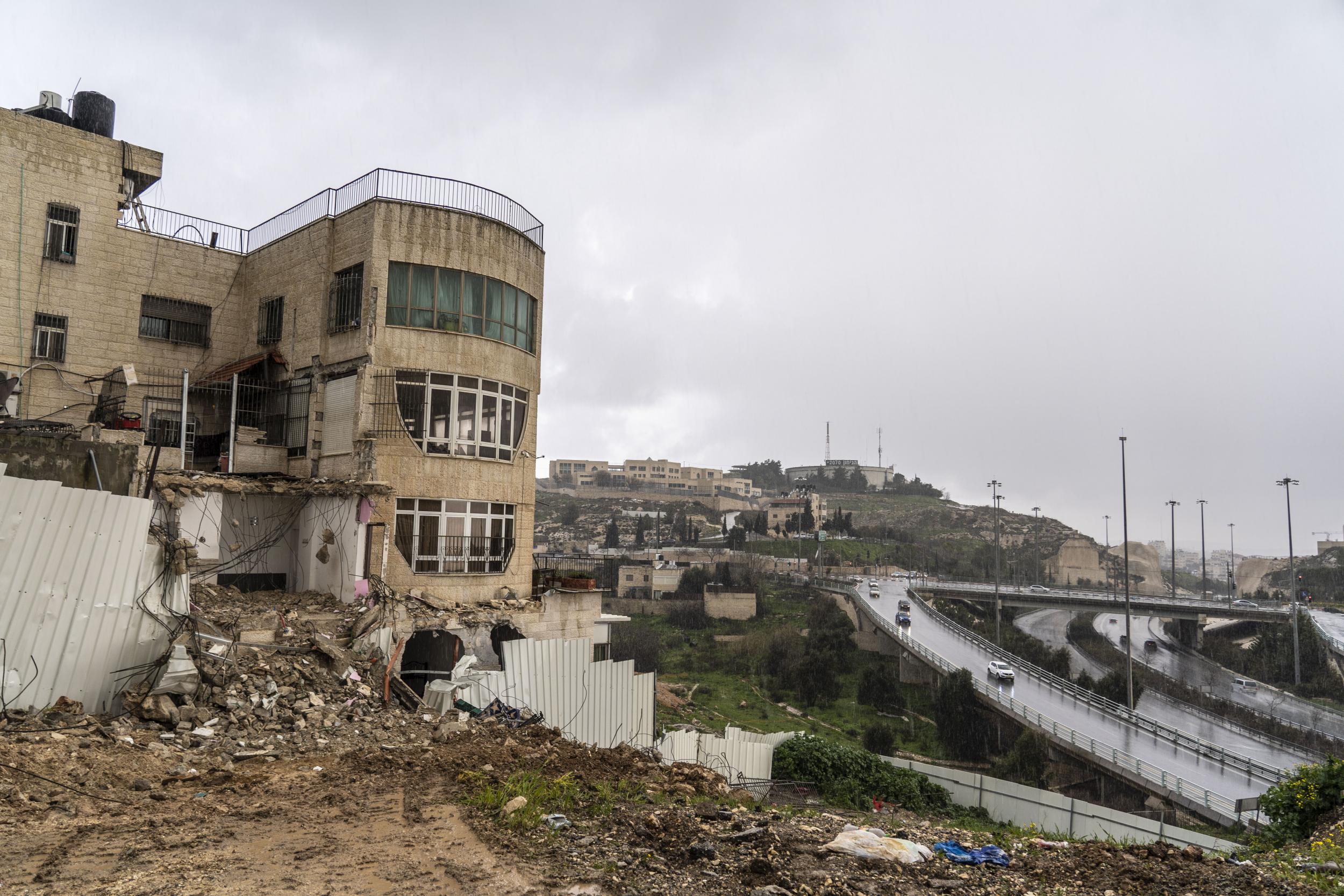
The Independent reached out to Coordination of Government Activities in the Territories (Cogat), a defence ministry unit, for comment on whether they would continue house demolitions given the health risk they pose. There was no response.
Last week Israeli police also launched raids on the East Jerusalem neighbourhood of al-’Esawiyah, part of an operation which began in April 2019 and which has seen the police regularly fire sponge rounds, tear gas canisters and stun grenades at residences.
The Israeli police have repeatedly defended their actions saying in the past that they are responding to violent acts perpetrated by local residents who they said throw Molotov cocktails and stones at their officers.
B’Tselem said security forces enter the neighbourhood daily, even at night, and more so on weekends, “for no apparent reason and initiate friction with the residents”.
“The police abuse of Palestinians in al-’Esawiyah, by now a permanent feature of life in the neighbourhood, is illegal and cannot be justified even under normal circumstances,” the group said. “Yet at this sensitive time, such conduct exposes residents to substantial and completely unnecessary health risks, as it encourages gatherings and forces arrested residents, including many minors, to leave home and be around strangers,” the group added.
The continued oppression doesn’t stop in the face of this global pandemic... It is essential that aid to the Palestinians keeps coming in
Yara Hawari, a senior Palestine policy fellow at Al-Shabaka, said that all the indications, including the police raids and continued demolitions, show that there would be very little change for Palestinians despite the global emergency. She said Palestinians are particularly vulnerable as they often have little or no access to decent healthcare and rely on Israel for key supplies, like water. There are particular concerns for Gaza, where the health system is already on its knees.
“The continued oppression doesn’t stop in the face of this global pandemic it won’t stop, it will continue,” she told The Independent. “It is essential that aid to the Palestinians keeps coming in, especially to [the UNs Palestinian refugee agency], which is desperately trying to meet the needs of refugees, a particularly vulnerable population at this time.”
The misery the coronavirus piles on to the Palestinians comes after what many civil society groups say was a terrible year for rights as well as the humanitarian situation. In 2019 B’Tselem documented a record-high number of house demolitions in East Jerusalem, as well as a steady surge in settler violence over the past few years.
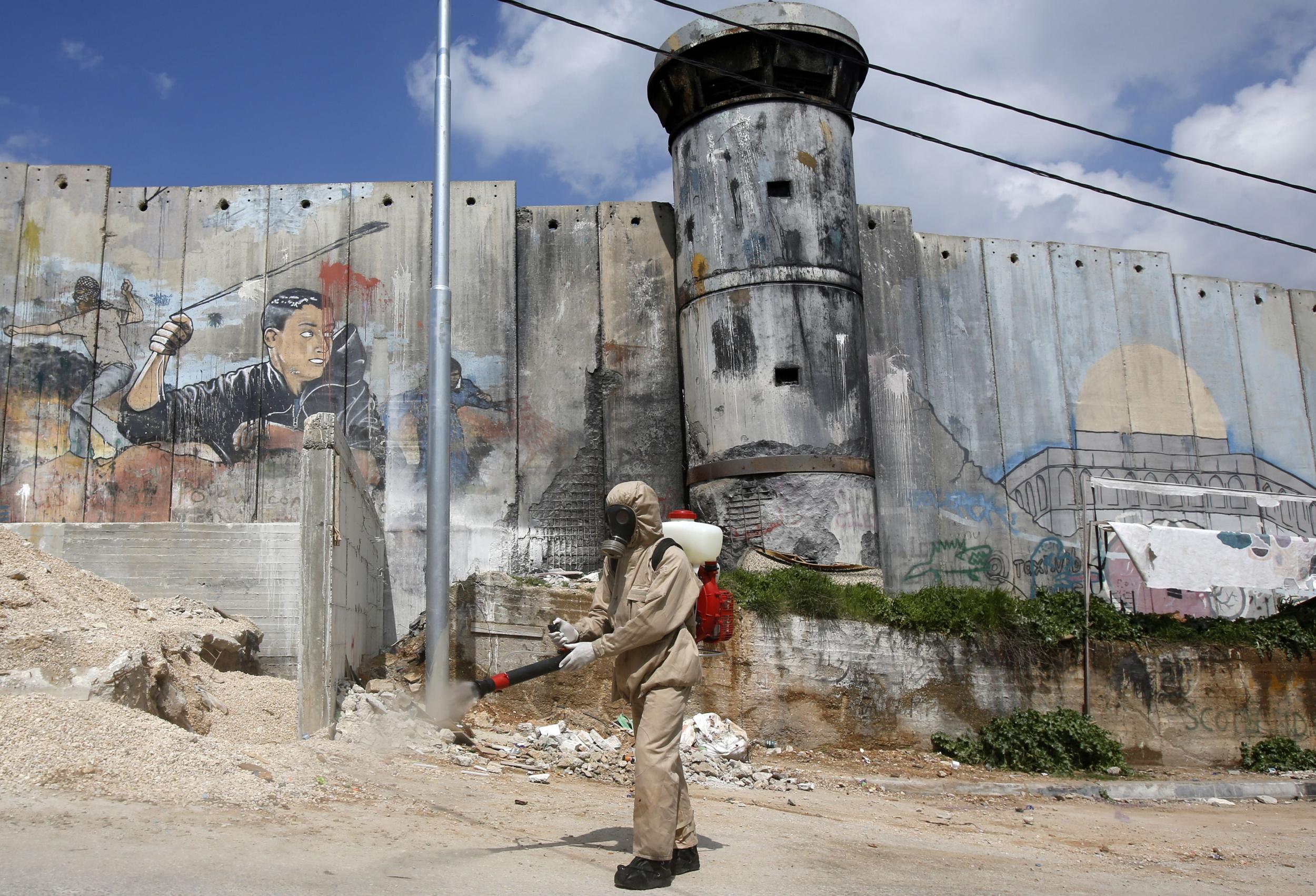
Settlement monitor Peace Now said the construction rate of settlements in the West Bank – where 500,000 Israelis now live – has also risen by 25 per cent over the past two years. The humanitarian situation in Gaza, a blockaded strip of territory run by militant group Hamas, has gone beyond crisis point in terms of access to clean water, electricity, health services, and soaring unemployment.
Gaza’s health officials told The Independent this has left them particularly vulnerable to the pandemic. They were already lacking 42 per cent of the essential drugs list and only have 8 ICU beds prepped for coronavirus cases as well just over a week’s supply of protective gear for medics.
Israel has sent over 200 testing kits to Gaza. More are needed. All groups say they have noticed a significant change since Donald Trump took office and forged an administration that is firmly in support of Israel’s right-wing nationalist agenda that sees an Israel that includes most of the West Bank.
In a break from his republican and democratic predecessors, his administration went as far as to declare last year it did not consider Israeli settlements to be illegal under international law. Most of the world considers the West Bank and East Jerusalem, captured by Israel in the 1967 Middle East war, to be occupied territory. Israeli settlements are deemed illegal under international law and a serious obstacle to peace.
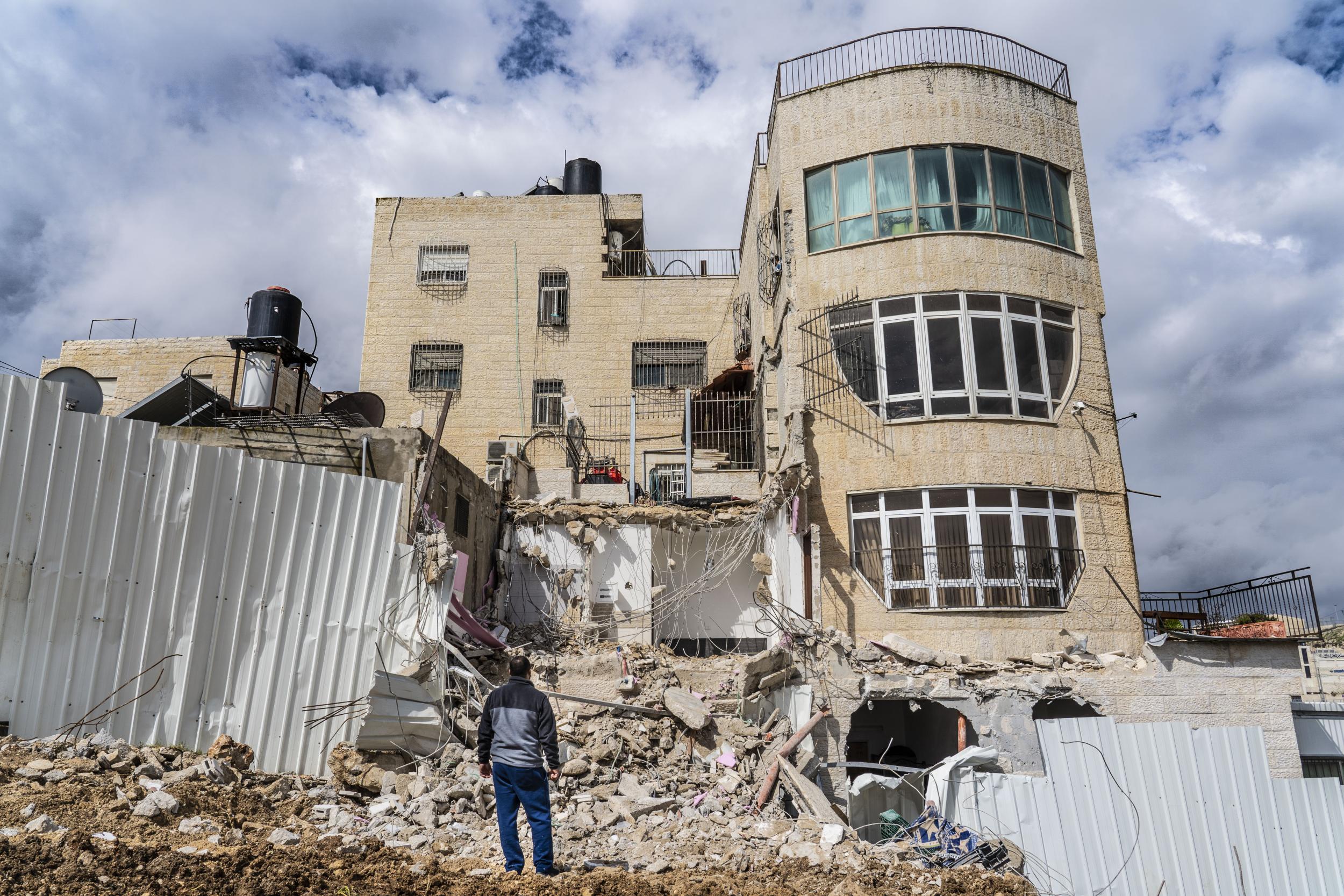
With the support of most of the international community Palestinians see these areas as part of their future independent state. But with 500,000 Israeli settlers now living in the West Bank, and over 220,000 more in east Jerusalem, those hopes are dwindling. This was made more acute when Mr Trump and his son-in-law, Jared Kushner, released a peace plan at the end of last year that was widely labelled the most pro-Israeli vision of a resolution to the decades-old conflict, apportioning Israel swathes of Palestinian land.
Almost immediately after it was released Netanyahu vowed to annex the Jordan Valley in the West Bank, with the apparent green light from Washington. Peace Now said Israel’s average annual settlement construction rate has already risen by 25 per cent since Trump took office in 2017, with on average of 2,267 homes built per year. In 2019 eleven new illegal outposts were also established, a new high.
The number of demolitions has surged since Trump came into power. It’s clear they don’t want us here, they want us to leave Jerusalem and this land completely. And a pandemic won’t stop that
The next few years are only expected to be worse. Emboldened by Trump’s backing, Netanyahu’s government last year approved plans to build thousands of new homes, laying the groundwork for a sharp spike in construction in the coming years. “They’re taking advantage of a window of opportunity that they have under the Trump administration,” said Hagit Ofran, a Peace Now researcher. “Something In the atmosphere has changed, the settlers have never felt more emboldened.”
Amit Gilutz, from B’Tselem agreed. “When Trump took office there was a sense that the green light from the administration had become brighter and brighter,” he said. “If you look at the rhetoric, all the masks are flying off, annexation is out in the open,” he added.
It has yet to be seen how the coronavirus restrictions will impact projects like settlement construction for Israel. For now, curfews and quarantines do not affect the Israeli construction sector, which at least under Israeli regulations can continue for settlements in the West Bank.
Back in East Jerusalem, there is little hope for change. “The number of demolitions has surged since Trump came into power, we don’t see that stopping even now,” says Mohamed. “It’s clear they don’t want us to be here, they want us to leave Jerusalem and this land completely. And a pandemic won’t stop that.”
Join our commenting forum
Join thought-provoking conversations, follow other Independent readers and see their replies
Comments